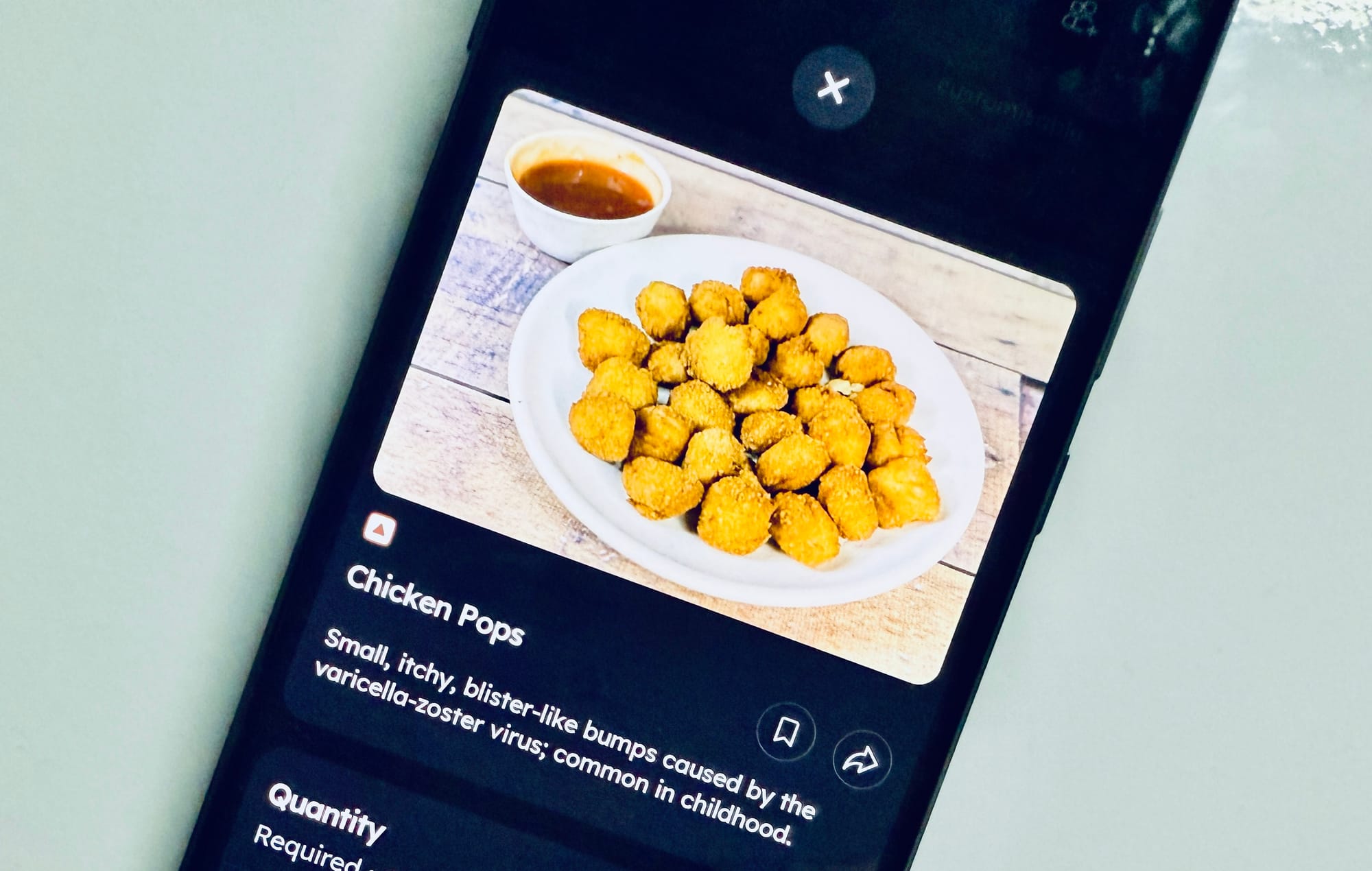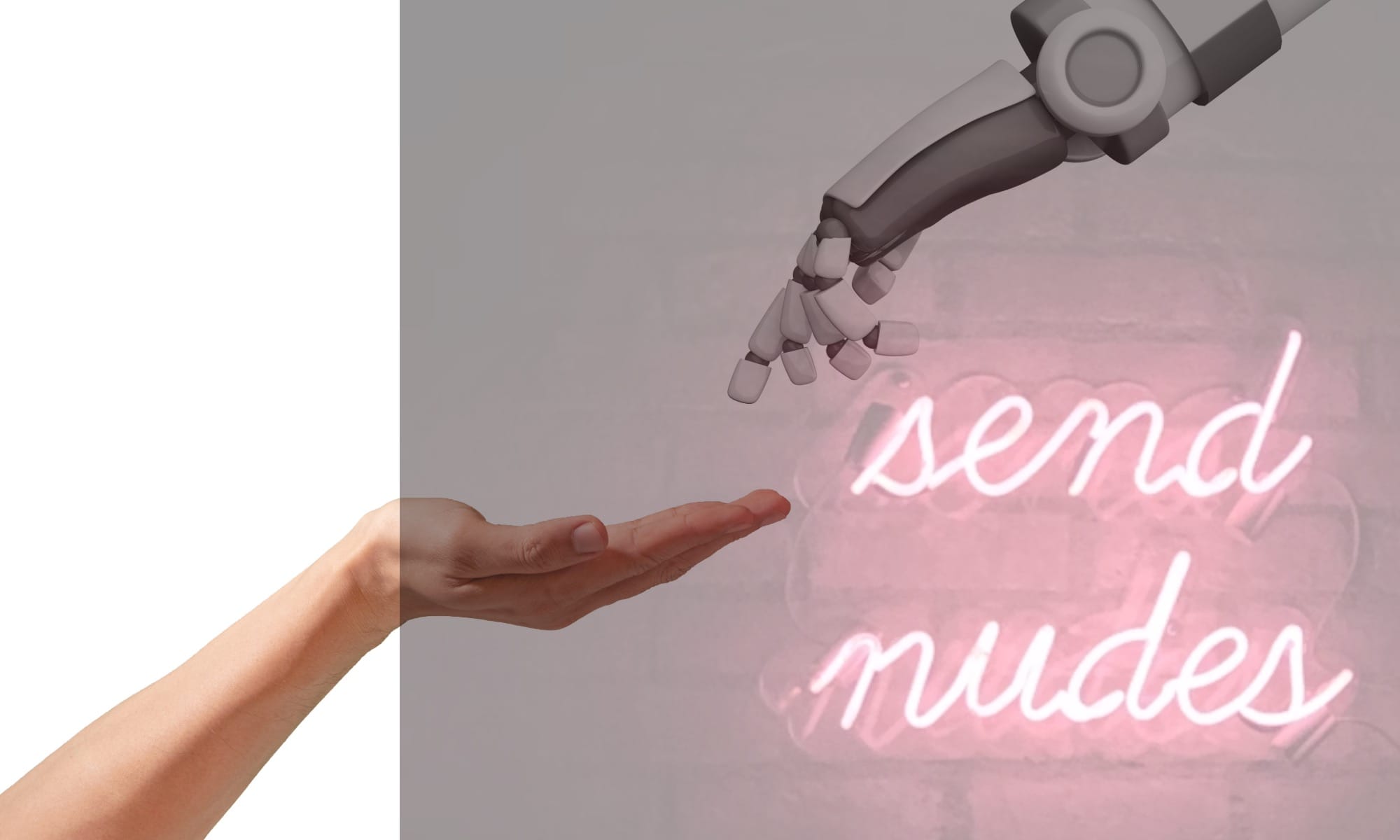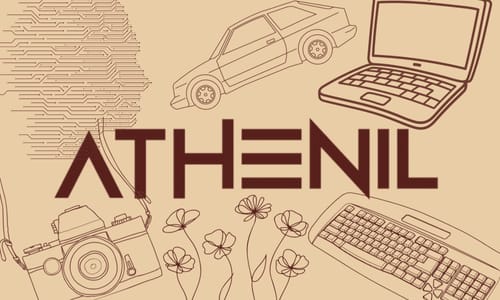So, it's all about AI... and its shitshow.
Zomato's systems apparently used AI to describe Chicken Pops and turned it into a virus-loaded nightmare. In related news, AI nudify websites and tools are making millions, and interestingly, India has among the highest numbers of visitors.
Elon Musk thinks you should be able to talk with an AI-powered anime waifu, so he is pushing digital characters atop his Grok AI, the same chatbot that has a very Hitler-friendly history. And finally, Facebook is waking up to the menace of copy-pasted slop. Dig for more:
A dish that looks like blisters, garnished with varicella virus. Thanks, AI and Zomato!

Artificial intelligence continues to prove its comedic (and sometimes stomach-churning) potential in the food industry. A recent incident on the delivery platform Zomato has highlighted the pitfalls of relying solely on AI for content generation.
A restaurant in Sikar, Rajasthan, featured an appetizer named "Chicken Pops" accompanied by a disturbingly inaccurate description detailing symptoms of chickenpox, likely a result of an AI misinterpreting the dish name.
- The Royal Roll Express restaurant in Sikar listed "Chicken Pops" with a description referencing "small, itchy, blister-like bumps caused by the varicella-zoster virus" on Zomato.
- This error is speculated to be a result of AI digitizing menus, as Zomato announced in 2020 that it would use machine learning for this process "without any human input required."
- While Zomato banned AI-generated images in 2024, no such ban exists for menu descriptions, allowing such factual inaccuracies to persist.
Meta will crack down on original or stolen content

Meta has announced a significant push to curb "unoriginal" content on Facebook, targeting accounts that repeatedly repost others' text, photos, or videos. This is the definition of original now:
"Unoriginal content reuses or repurposes another creator's content repeatedly without crediting them, taking advantage of their creativity and hard work."
This move comes as platforms grapple with an influx of low-quality, often AI-generated, "slop" content, and follows similar policy clarifications from YouTube. Meta aims to ensure original creators receive due credit and visibility while penalizing those who abuse the system for monetization.
- Accounts found to be repeatedly reusing others' content will face temporary loss of access to monetization programs.
- Meta is also testing a system to add links on duplicate videos, directing viewers to the original content and creator.
- Facebook's systems will reduce the distribution of duplicate videos to prioritize original creators, and Meta is testing links on copies to direct viewers to the original content.
Read the full story at Facebook.
Musk's Grok AI gets anime companions to ensnare incels
Update your app to try out @Grok companions!https://t.co/3M9k0jUmSv https://t.co/DJrHXHI7IM
— Elon Musk (@elonmusk) July 14, 2025
Grok has unveiled an engaging new feature for its iOS app: AI Companions. These fully 3D animated characters offer voice-based interactions, bringing a new dimension to AI companionship.
Currently, users can choose between Ani, an anime-inspired character with a "flirty and whispery" voice, and Rudy, a red panda that can express different moods, including a "Bad Rudy" persona.
This innovation by xAI positions Grok ahead of rivals like Character AI and Microsoft, who are yet to release similar interactive 3D avatars.
- Grok's AI Companions, currently Ani (anime-inspired) and Rudy (red panda), offer interactive voice conversations and change backgrounds based on interaction.
- Users can "level up" their relationship with these companions, unlocking new features; for example, Ani has NSFW options at higher relationship levels, and Rudy's moods can shift dynamically.
- More companions, including a male anime character named Chad, are teased for future release, indicating a significant investment by Grok in expanding this offering.
Google plans to merge Android with Chrome OS

Google's Android ecosystem president, Sameer Samat, has officially confirmed what has been rumored for years: the company plans to merge its mobile operating system, Android, with ChromeOS, which powers Chromebook laptops, into a single unified platform.
This strategic move aims to streamline development, enhance user experience across devices, and bolster Google's competitiveness in the tablet market against Apple's iPadOS. The integration has reportedly been underway for some time, with ChromeOS already building on parts of the Android stack.
- Sameer Samat, President of Google's Android ecosystem, explicitly stated, "we're going to be combining Chrome OS and Android into a single platform."
- This unification aims to speed up feature development and improve functionality on tablets, where both Android and ChromeOS have historically lagged behind competitors.
- The merger builds on existing groundwork, with ChromeOS already utilizing portions of the Android stack and Android gaining desktop-like features such as resizable windows and improved external display support.
Read the full story at Tech Radar.
Online AI tools that turn pics into nudes are making millions of dollars

The proliferation of "nudify" apps and websites, which leverage AI to create nonconsensual explicit images of women and girls, including child sexual abuse material, continues to be a rampant and lucrative issue. India has among the highest numbers of visitors.
Recent research by Indicator reveals that these harmful services are accessed by millions monthly and generate substantial revenue, primarily by relying on core infrastructure and services provided by major tech companies like Google, Amazon, and Cloudflare.
- An analysis of 85 "nudify" websites found they collectively average 18.5 million visitors per month and may be generating up to $36 million annually.
- Amazon and Cloudflare provide hosting or content delivery for 62 of these sites, while Google's sign-on system is used on 54, alongside other mainstream payment services.
- Despite the increasing illegality of creating or sharing explicit deepfakes and some legal actions, comprehensive enforcement from tech companies remains largely absent, allowing the industry to flourish.
Read the full story at WIRED.

